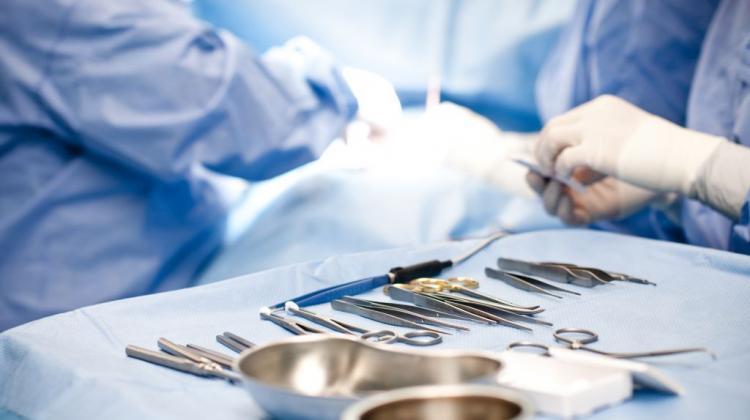Better use of British operating rooms with a Polish system
 Photo: Fotolia
Photo: Fotolia
Significant improvement in the use of hospital operating rooms in the UK will be possible thanks to the project carried out by a British company and a Polish partner. Future Processing informed about the project.
According to the Royal College of Surgeons, more than 8 percent of the 4.7 million surgeries planned each year under the British National Health Service (NHS) are cancelled.
As many as 80 percent of these surgeries are cancelled before the patient is transported to the operating room. In total, 394 thousand planned treatments per year are not carried out in the scheduled time. Each cancelled surgery is a measurable cost. Its cancellation is also important for other patients, whose treatments could be carried out faster. According to calculations of the NHS Department of Innovation, 10% improvement of the use of operating rooms and adjusting the work plan of doctors and teams during orthopaedic surgeries should save GBP 3 960 000 a year in a medium-sized hospital.
British and Polish experts have found a way to reduce these losses and help the NHS save 945 million British pounds a year (this amount is wasted due to ineffective planning and cancellation of previously scheduled procedures). The solution is a system that will optimise the use of operating rooms in British hospitals.
The solution designed by Four Eyes Insight and implemented by Polish engineers from Future Processing is intended for coordinators responsible for planning surgical procedures in hospitals, we read in a press release. These people decide about human health, but they are also responsible for the finances of hospitals. The amount of data flowing from various hospital systems (schedules of doctors and nurses, allergies, infectious diseases or the number of completed preoperative tests of patients), which the coordinators must analyse, is enormous. It often exceeds the analytical capabilities of a human being.
The project team has developed an AI-based tool with transparent reporting of the availability of operating rooms and medical personnel. Based on these data, the application allows to verify the level of use of the operating room. As a result, it allows other patients to have a faster procedure. The application takes into account who must be operated first (children), and last (people who are infectiously ill), allocates rooms due to specific provisions regarding anaesthetic procedures or the need for post-operative care. The specific features of the patient are clearly emphasized, for example, that he or she has an allergy or requires a faster surgery.
The application allows to speed up treatment, because it shortens the waiting time for the procedure. According to the press materials, with the app rooms can have reservations exceeding 100%, because when the operation ends, another team of doctors and their patient can be prepared for surgery. If a surgery can not take place, another procedure is automatically suggested in its place, which shortens the waiting queue.
From the point of view of hospital managers, the Insight platform reports on the occupied postoperative beds; evaluates the surgery cost (based on historical data) and allows to estimate the hospital`s income from the procedure.
The application also allows doctors to better prepare for the surgery: it provides patient data in a clear and systematic way. By analysing the doctor`s working time (some doctors perform the same procedures faster or slower than others), it allows coordinators to plan procedures in the rooms more accurately.
For the project concerning optimising the use of operating rooms in British hospitals, Four Eyes Insight and the Polish technology company Future Processing were among the winners of the Real IT Awards. It is one of the most prestigious international awards in the technology industry.
Author: Paweł Wernicki
pmw/ zan/ kap/
tr. RL
Przed dodaniem komentarza prosimy o zapoznanie z Regulaminem forum serwisu Nauka w Polsce.















